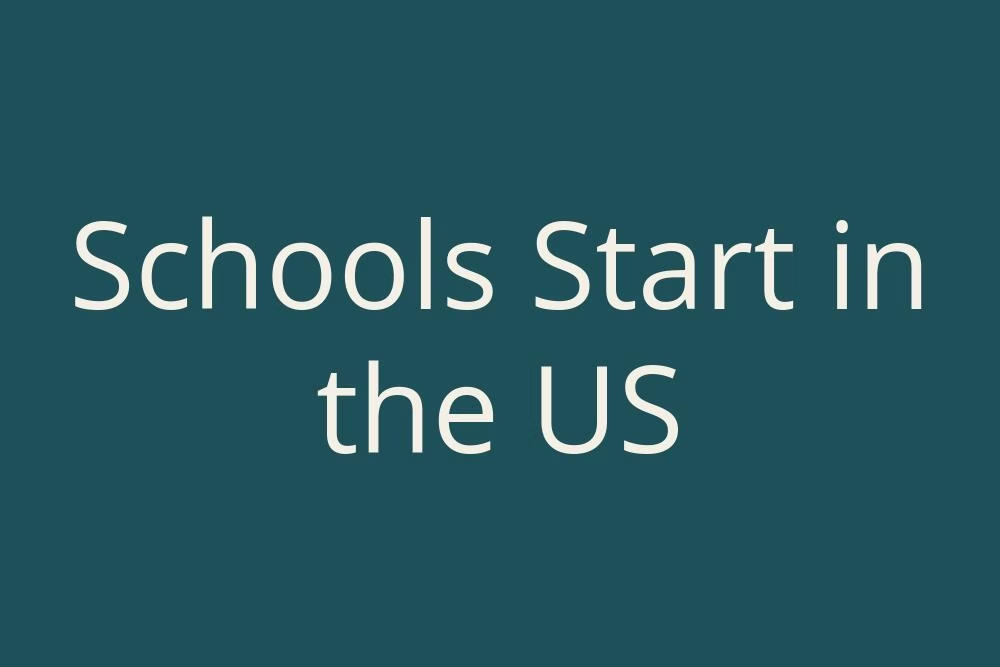Days Countdown
Weeks Countdown
Months Countdown
How Many Days Until Labor Day? (2026-2045)
| Date | Day | Days Left |
|---|---|---|
| 2026 (September 7) | Monday | 218 days |
| 2027 (September 6) | Monday | 582 days |
| 2028 (September 4) | Monday | 946 days |
| 2029 (September 3) | Monday | 1310 days |
| 2030 (September 2) | Monday | 1674 days |
| 2031 (September 1) | Monday | 2038 days |
| 2032 (September 6) | Monday | 2409 days |
| 2033 (September 5) | Monday | 2773 days |
| 2034 (September 4) | Monday | 3137 days |
| 2035 (September 3) | Monday | 3501 days |
| 2036 (September 1) | Monday | 3865 days |
| 2037 (September 7) | Monday | 4236 days |
| 2038 (September 6) | Monday | 4600 days |
| 2039 (September 5) | Monday | 4964 days |
| 2040 (September 3) | Monday | 5328 days |
| 2041 (September 2) | Monday | 5692 days |
| 2042 (September 1) | Monday | 6056 days |
| 2043 (September 7) | Monday | 6427 days |
| 2044 (September 5) | Monday | 6791 days |
| 2045 (September 4) | Monday | 7155 days |
While many of us associate this time of year with the unofficial end of summer, packing away white clothes, and firing up the grill one last time, the origins of this holiday are rooted in something far more substantial. It stands as a national tribute to the contributions workers have made to the strength, prosperity, and well-being of the country. It is observed on the first Monday in September, creating a long weekend that bridges the gap between the heat of summer and the cooling autumn breeze.
The Historical Roots of the Holiday
To understand why we celebrate, we have to look back at the late 19th century. During the height of the Industrial Revolution, the average American worked 12-hour days and seven-day weeks just to scrape by. In these tough conditions, labor unions began to grow more prominent and vocal. They began organizing strikes and rallies to protest poor conditions and compel employers to renegotiate hours and pay.
The very first Labor Day celebration actually took place on Tuesday, September 5, 1882, in New York City. It wasn’t a federal holiday yet; it was a massive parade organized by the Central Labor Union. Reports from that time indicate that 10,000 workers took unpaid time off to march from City Hall to Union Square. This event established the template for celebrations: a street parade to exhibit to the public the strength and esprit de corps of the trade and labor organizations, followed by a festival for the recreation and amusement of the workers and their families.
| Feature | Early Celebrations (1880s) | Modern Observance |
|---|---|---|
| Primary Focus | Demanding shorter workdays (8-hour movement) | Rest, leisure, and retail sales |
| Main Event | Massive urban parades and speeches | Backyard barbecues and beach trips |
| Timing | Often randomly chosen by local unions | Fixed to the first Monday of September |
| Atmosphere | Political and protest-heavy | Relaxed and celebratory |
Why Do We Celebrate in September?
It might seem odd that the date isn’t tied to a specific historic battle or birthday. The choice of September was actually quite practical. The Central Labor Union selected this date primarily becuase it filled a long gap in the calendar. There was a significant stretch of time between Independence Day in July and Thanksgiving in November. Placing a holiday in early September provided a much-needed break for the workforce during this long interval.
While other dates were proposed—such as May 1st, which represents International Workers’ Day (May Day)—President Grover Cleveland and lawmakers wanted to steer clear of that date due to its association with more radical movements of the time, such as the Haymarket Riot. Thus, the September date stuck, offering a more neutral time to honor the American workforce without the immediate political heat of May Day.
Who Really Invented Labor Day?
History isn’t always crystal clear on who specifically proposed the holiday, and there is still some friendly debate among historians. Two men with very similiar last names are usually credited:
- Peter J. McGuire: A co-founder of the American Federation of Labor, he is often cited as the first to suggest a day to honor those “who from rude nature have delved and carved all the grandeur we behold.”
- Matthew Maguire: A machinist and secretary of the Central Labor Union in New York. Recent research suggests he might have been the actual proposer of the holiday in 1882, though his political views were considered a bit controversial at the time, which may have led to Peter J. McGuire getting the credit in schoolbooks.
Cultural Traditions and The “No White” Rule
Over the decades, the holiday has evolved from strict parades into a broader cultural marker. One of the most famous, albeit fading, traditions associated with this day is the fashion rule: “No white after Labor Day.”
This rule originated in the late 19th and early 20th centuries. For the wealthy, wearing white linen was a symbol of being on vacation. It meant you were away from the grime of the city. When they returned to the city from their summer cottages after Labor Day, they packed away the bright, breezy summer clothes and returned to darker, formal city attire. Today, the fashion world has largely moved past this, and wearing white year-round is generally accepted, but the old phrase still lingers in conversation.
Beyond fashion, the weekend marks the beginning of the football season for many Americans, with college and professional teams kicking off their schedules. It represents the last chance for camping trips and is the final bell before the school year begins in earnest for many districts.


